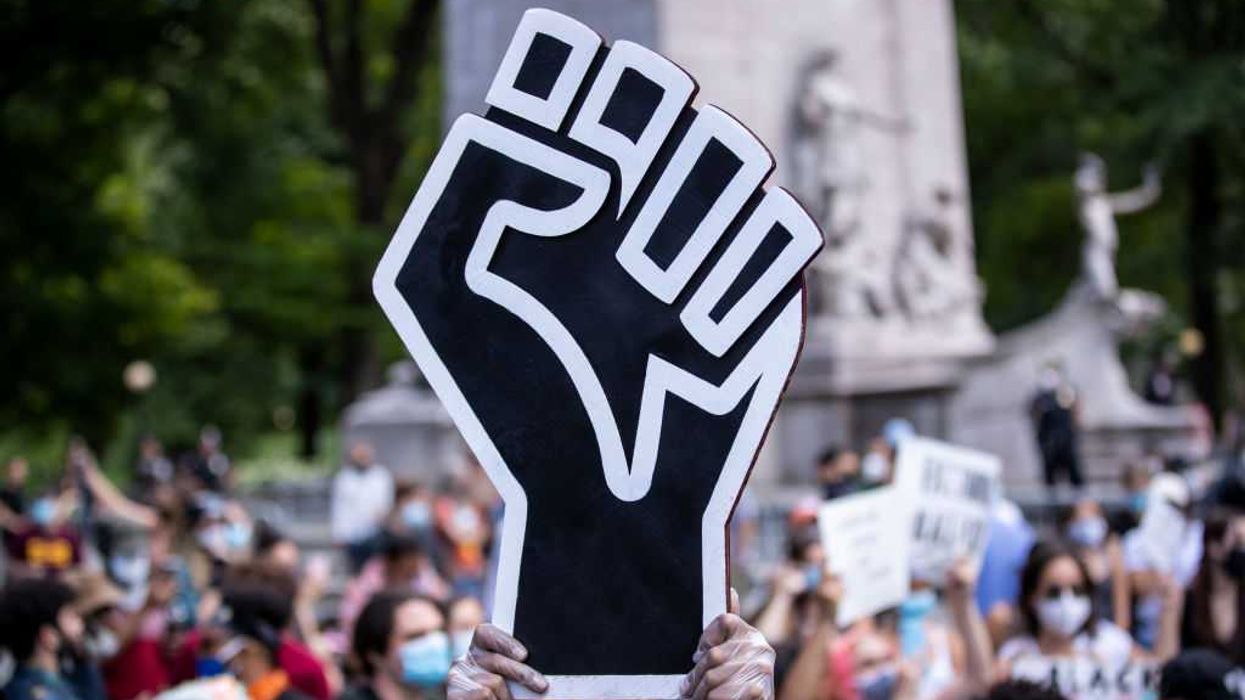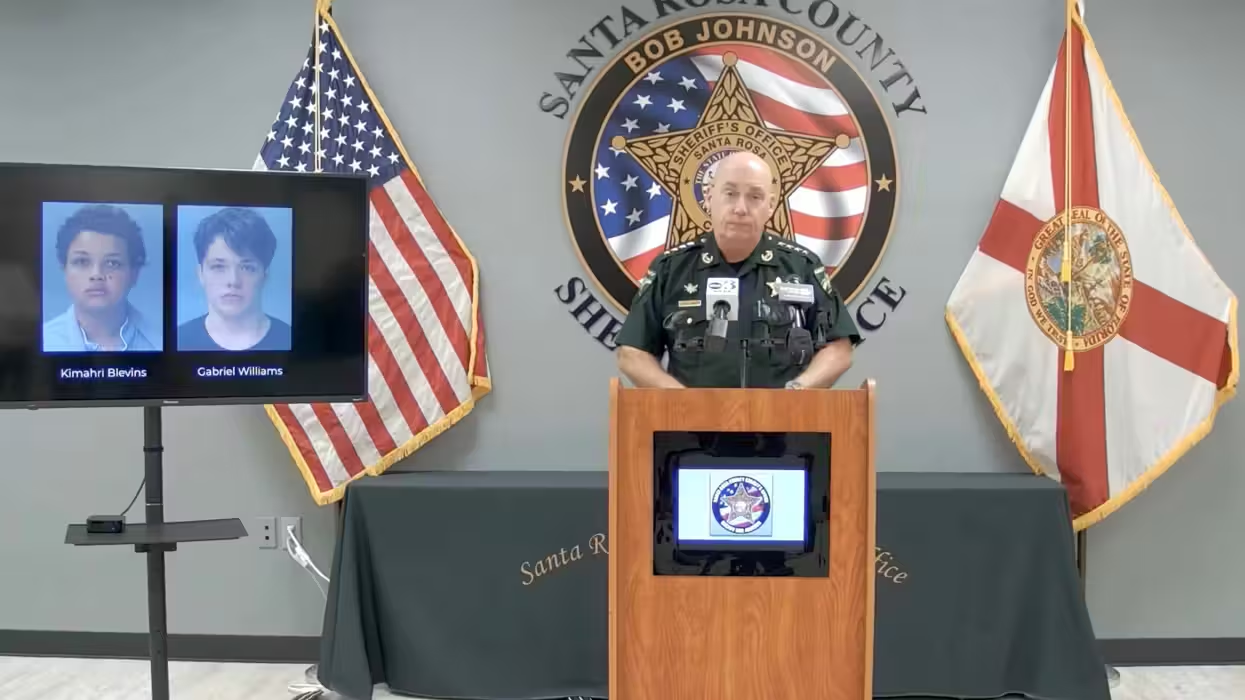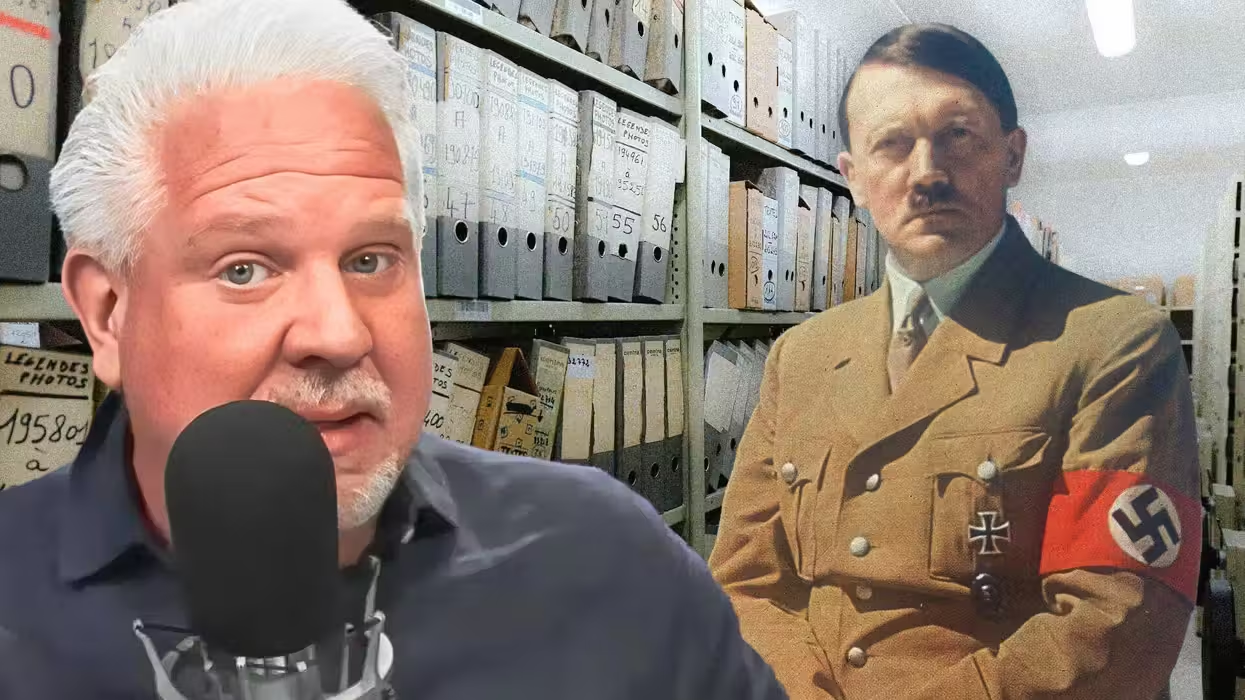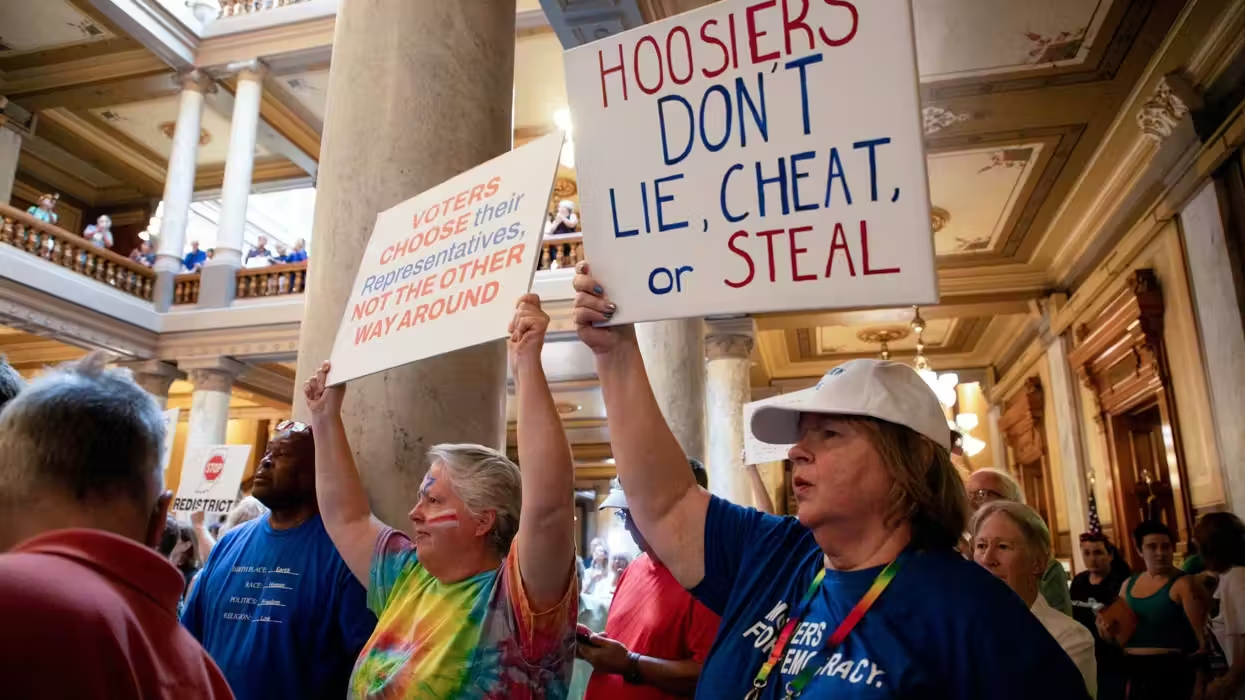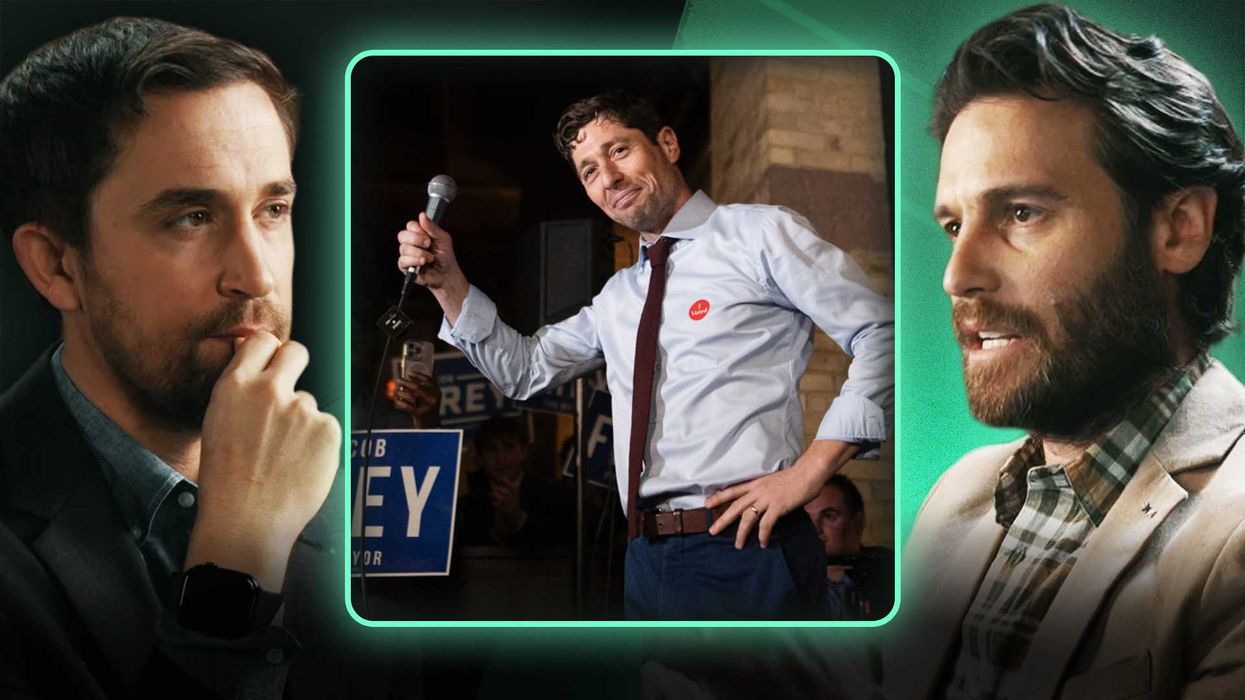
© 2025 Blaze Media LLC. All rights reserved.
Is There More to the Invisible Children Story in Uganda Than Meets the Eye?
March 08, 2012
"At the moment I think the work of Invisible Children is about appealing to people's emotions."
I was a sophomore in college when I first saw the movie. I remember sitting cross-legged in front of the screen while wearing a white undershirt and khaki pants. I cried.
How can you not shed a tear when you see innocent children talking about having to kill family members and being captured to take part in a mad man's war? I never forgot the images.
Those images were the result of the nonprofit Invisible Children -- a group fighting to end the atrocities of Joseph Kony in Uganda. He and his Lord's Resistance Army (LRA) captures the helpless children, forces them to fight, and kills and rapes others.
For a little bit, I even wanted to go over to Uganda and join the fight against Kony. I didn't. I became a journalist. And now I find myself in a tough position: after posting an Associated Press story about the Invisible Children's newest video (which has been seen millions and millions of times and even has the support of Anonymous), I've been getting messages from people (including my own brother) telling me to look into it more. Something seems a little off, they've said. Torn, I started digging a little more. And here's what I found.

On the surface, something does seem a little odd. In looking at what people are saying about the new video and campaign, there could be legitimate criticisms. The UK's Guardian has posted an extensive piece detailing some of the critiques. For example, it points to the tumblr Visible Children, which has raised some important concerns, including Kony not even being in Uganda anymore and accusations of "manipulating facts:"
The group is in favour of direct military intervention, and their money supports the Ugandan government’s army and various other military forces. Here’s a photo of the founders of Invisible Children posing with weapons and personnel of the Sudan People’s Liberation Army. Both the Ugandan army and Sudan People’s Liberation Army are riddled with accusations of rape and looting, but Invisible Children defends them, arguing that the Ugandan army is “better equipped than that of any of the other affected countries”, although Kony is no longer active in Uganda and hasn’t been since 2006 by their own admission. These books each refer to the rape and sexual assault that are perennial issues with the UPDF, the military group Invisible Children is defending.Still, the bulk of Invisible Children’s spending isn’t on supporting African militias, but on awareness and filmmaking. Which can be great, except that Foreign Affairs has claimed that Invisible Children (among others) “manipulates facts for strategic purposes, exaggerating the scale of LRA abductions and murders and emphasizing the LRA’s use of innocent children as soldiers, and portraying Kony — a brutal man, to be sure — as uniquely awful, a Kurtz-like embodiment of evil.” He’s certainly evil, but exaggeration and manipulation to capture the public eye is unproductive, unprofessional and dishonest.
But Visible Children isn't the only one raising concerns.
Michael Wilson from Foreign Policy, who spent time in Uganda:
It would be great to get rid of Kony. He and his forces have left a path of abductions and mass murder in their wake for over 20 years. But let's get two things straight: 1) Joseph Kony is not in Uganda and hasn't been for 6 years; 2) the LRA now numbers at most in the hundreds, and while it is still causing immense suffering, it is unclear how millions of well-meaning but misinformed people are going to help deal with the more complicated reality.First, the facts. Following a successful campaign by the Ugandan military and failed peace talks in 2006, the LRA was pushed out of Uganda and has been operating in extremely remote areas of the DRC, South Sudan, and the Central African Republic -- where Kony himself is believed to be now. The Ugandan military has been pursuing the LRA since then but had little success (and several big screw-ups). In October last year, President Obama authorized the deployment of 100 U.S. Army advisors to help the Ugandan military track down Kony, with no results disclosed to date.
Additionally, the LRA (thankfully!) does not have 30,000 mindless child soldiers. This grim figure, cited by Invisible Children in the film (and by others) refers to the total number of kids abducted by the LRA over nearly 30 years. Eerily, it is also the same number estimated for the total killed in the more than 20 years of conflict in Northern Uganda.
From what I know about Invisible Children, it's an international NGO, and it documents the lives of children living in conflict for international campaigning to draw attention to the lives of children in the north.Six or 10 years ago, this would have been a really effective campaign strategy to get international campaigning. But today, years after Kony has moved away from Uganda, I think campaigning that appeals to these emotions … I'm not sure that's effective for now. The circumstances in the north have changed.
Many NGOs and the government, especially local government in the north, are about rebuilding and securing lives for children, in education, sanitation, health and livelihoods. International campaigning that doesn't support this agenda is not so useful at this point. We have moved beyond that.
[...]I don't think this is the best way. It might be an appeal that makes sense in America. But there are more fundamental challenges. Kony has been around for 25 years and over. I don't think in the north at the moment that is really what is most important. It might be best on the internet and the like but, at the end of the day, there are more pressing things to deal with. If the Americans had wanted to arrest him, they would have done that a long time ago.
They [Invisible Children] are not a member of our forum. Many international organisations prefer to work and have direct contact with their quarters. They don't work so much within the structures we have in the country. There is nothing dramatic about them. They are like any other organisation trying to make a difference. At the moment I think the work of Invisible Children is about appealing to people's emotions. I think that time has passed. Their reputation in the country is something that can be debatable. There is a strong argument generally about NGOs and their work in the north.
It doesn't sound like a fair representation of Uganda. We have challenges within the country, but certainly the perception of a country at war is not accurate at all. There are political, economic and social challenges, but they are complex. Being dramatic about a country at war is not accurate. [Emphasis added]
John Vidal, environment writer at the Guardian:
They call themselves "a movement" seeking to end the conflict in Uganda and stop the abduction of children for use as child soldiers, but behind the slick website and the touchy-feely talk about "changing the course of human history", there's a hard-nosed money-making operation led by US filmmakers and accountants, commuication [sic] experts, lobbyists and salespeople.So far the organisation has released 11 films and run film tours across the US and other countries to raise awareness. In Uganda, it has given scholarships to 750 children, and helped to re-build schools there and in centralo Africa. The organisation's accounts show it's a cash rich operation, which more than tripled its income in 2011, with more than two thirds of its money coming from "general donations".
The accounts suggest nearly 25% of its $8.8m income last year was spent on travel and film-making with only around 30% going toward programes on the ground. The great majority of the money raised has been spent in the US. $1.7 million went on US employee salaries, $357,000 in film costs, $850,000 in film production costs, $244,000 in "professional services" - thought to be Washington lobbyists - and $1.07 million in travel expenses . Nearly $400,000 was spent on office rent in San Diego.
And for what it's worth, Aaron Rodgers, the NFL MVP who at first came out in support of the group, has tempered his reaction:

That's a lot to digest, especially for this writer, who was moved years ago by the stories of pain. But is that even the whole story. Maybe not. I'd be remiss not to point out some counterarguments. For one, even though Kony seems to have moved out of Uganda, he's still wreaking havoc wherever he or his LRA Army goes. The Guardian filed this report from the Congo in July:
Additionally, on radio Thursday, Glenn Beck shared that Sen. Jim Inhofe's (R-OK) office called to assure him that this wasn't something that was affiliated with or supported by the Obama administration, after Beck had raised concerns considering the administration's eagerness to involve itself in international conflicts. The Inhofe camp said the senator has been working with the organization for some time.
Most importantly, however, is the response put out by Invisible Children. If you read all the information above, you should consider the group's reaction. It's lengthy, but worth it. I've excerpted some of it below:
Re: Financials
Invisible Children’s financial statements are online for everyone to see. Financial statements from the last 5 years, including our 990, are available at www.invisiblechildren.com/financials. The organization spent 80.46% on our programs that further our three fold mission, 16.24% on administration and management costs and 3.22% on direct fundraising in FY2011. Invisible Children is independently audited every year and in full compliance with our 501 c 3 status.
Re: Ugandan government human rights record
We do not defend any of the human rights abuses perpetrated by the Ugandan government or the Ugandan army (UPDF). None of the money donated through Invisible Children ever goes to the government of Uganda. Yet the only feasible and proper way to stop Kony and protect the civilians he targets is to coordinate efforts with regional governments.
Re: Why work with the UPDF if the LRA is no longer in northern Uganda
The LRA left northern Uganda in 2006. The LRA is currently active in Democratic Republic of Congo, Central African Republic, and South Sudan. Invisible Children’s mission is to stop Joseph Kony and the LRA wherever they are and help rehabilitate LRA-affected communities. The Ugandan government’s army, the UPDF, is more organized and better equipped than that of any of the other affected countries (DRC, South Sudan, CAR) to track down Joseph Kony. Part of the US strategy to stop Kony is to encourage cooperation between the governments and armies of the 4 LRA-affected countries. The LRA was active in Uganda for nearly 20 years, displacing 1.7 million people and abducting at least 30,000 children. The people and government of Uganda have a vested interested in seeing him stopped.
Re: The photo of the founders with the guns (see banner image)
A story told by Jason Russell: The photo of Bobby, Laren and I with the guns was taken in an LRA camp in DRC during the 2008 Juba Peace Talks. We were there to see Joseph Kony come to the table to sign the Final Peace Agreement. The Sudan People’s Liberation Army (SPLA) was surrounding our camp for protection since Sudan was mediating the peace talks. We wanted to talk to them and film them and get their perspective. And because Bobby, Laren and I are friends and had been doing this for 5 years, we thought it would be funny to bring back to our friends and family a joke photo. You know, “Haha - they have bazookas in their hands but they’re actually fighting for peace.” The ironic thing about this photo is that I HATE guns. I always have. Back in 2008 I wanted this war to end, like we all did, peacefully, through peace talks. But Kony was not interested in that; he kept killing. And we still don’t want war. We don’t want him killed and we don’t want bombs dropped. We want him alive and captured and brought to justice.
Well that's certainly interesting.
"If encountering something you disagree with, suggest an alternative to what we are doing- and we will absolutely take heed," the group writes. "If it’s a matter of opinion, taste, humor, or style: we apologize, and will have to agree to disagree. As the poet Ke$ha says, 'we are who we are.'"
I won't comment on the wisdom of quoting Ke$ha while trying to defend your institution from criticism, but what I will say is that hopefully this has given you a lot to think about.
And whether the truth is on the side of the Invisible Children, the critics, or a combination of both, it's probably worth shedding more tears over. For a number of reasons.
If you have any other information to share with us, feel free to send it along.
Want to leave a tip?
We answer to you. Help keep our content free of advertisers and big tech censorship by leaving a tip today.
Want to join the conversation?
Already a subscriber?
Jonathon M. Seidl is a former managing editor of Blaze News and a best-selling author and speaker. His next book, “Confessions of a Christian Alcoholic,” will be released on October 7, 2025.
Jonathon M. Seidl
Jonathon M. Seidl is a former managing editor of Blaze News and a best-selling author and speaker. His next book, “Confessions of a Christian Alcoholic,” will be released on October 7, 2025.
more stories
Sign up for the Blaze newsletter
By signing up, you agree to our Privacy Policy and Terms of Use, and agree to receive content that may sometimes include advertisements. You may opt out at any time.
Related Content
© 2025 Blaze Media LLC. All rights reserved.
Get the stories that matter most delivered directly to your inbox.
By signing up, you agree to our Privacy Policy and Terms of Use, and agree to receive content that may sometimes include advertisements. You may opt out at any time.

